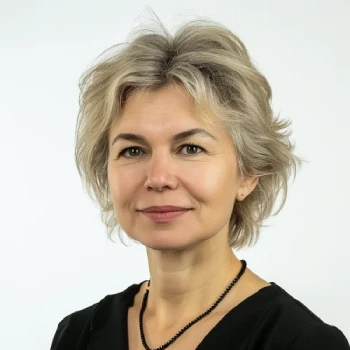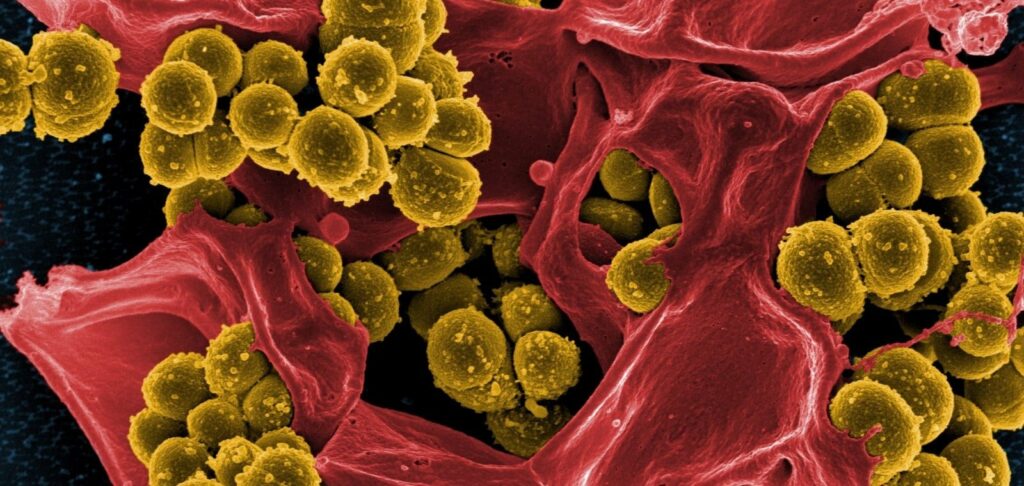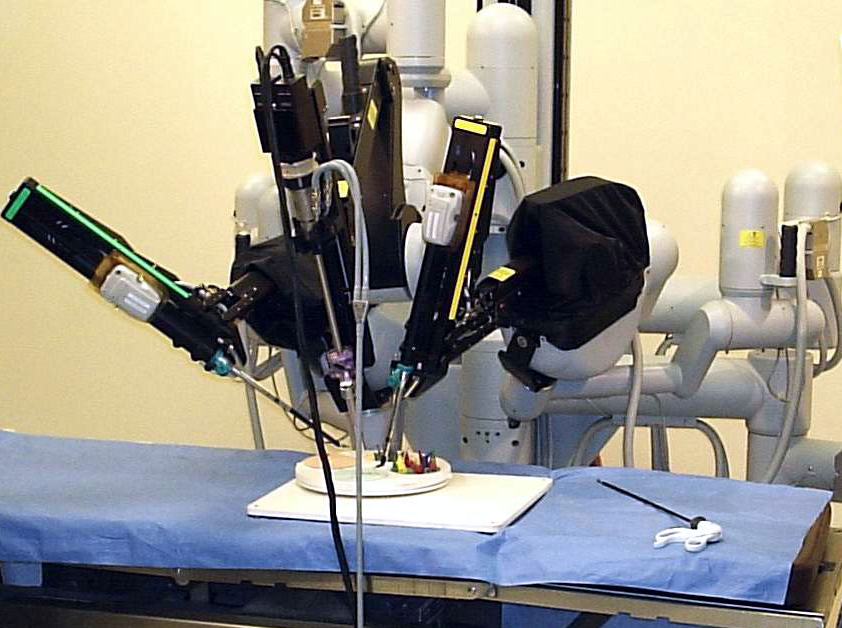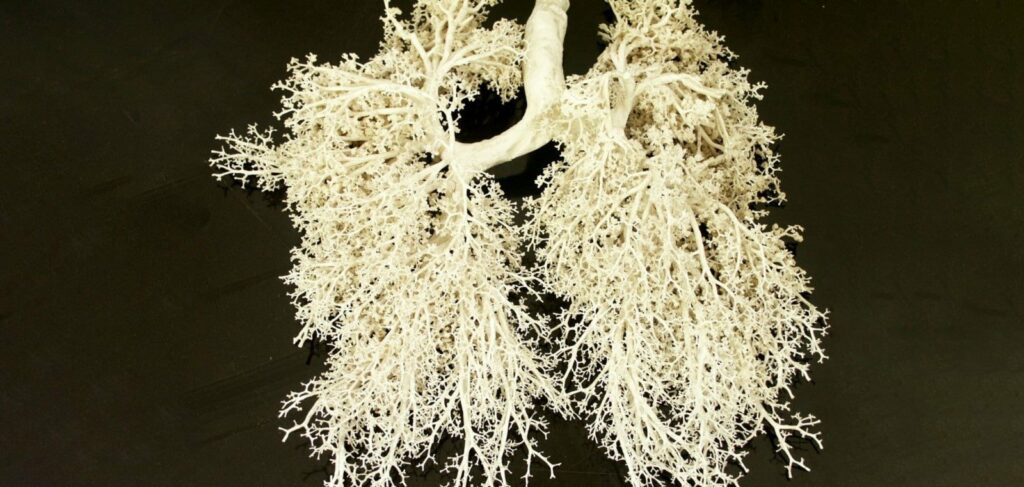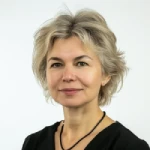
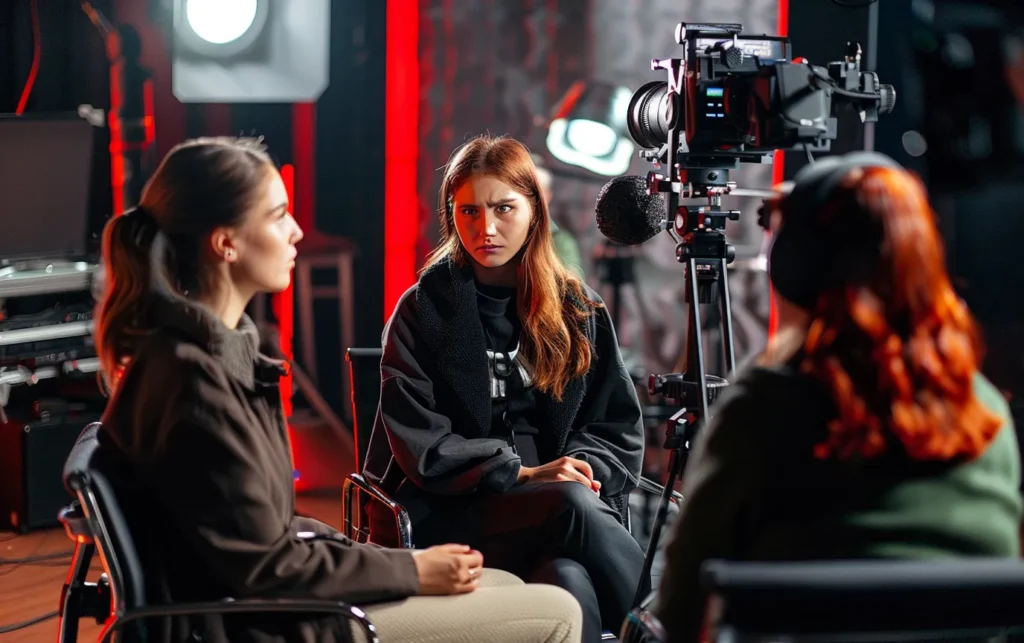
Людмила Шупенюк — известный украинский акушер-гинеколог, телеведущая и эксперт популярных медицинских телепроектов, таких как «Я соромлюсь свого тіла» на телеканале СТБ.
Она родилась в Черновцах в семье потомственных врачей. Людмила пошла по стопам родителей и после окончания с отличием Черновицкого медицинского университета стала практикующим акушером-гинекологом.
Сегодня Людмила Шупенюк является врачом высшей категории с более чем 27-летним стажем работы. Она трудится ведущим акушером-гинекологом в двух киевских клиниках — «Клиника Нова» и женской консультации.
С 2014 года Людмила начала сотрудничать с телевидением, став одной из ведущих экспертов проекта «Я соромлюсь свого тіла» вместе с коллегами Екатериной Безвершенко и Валерием Ославским.
Эта программа принесла ей большую популярность среди зрителей.
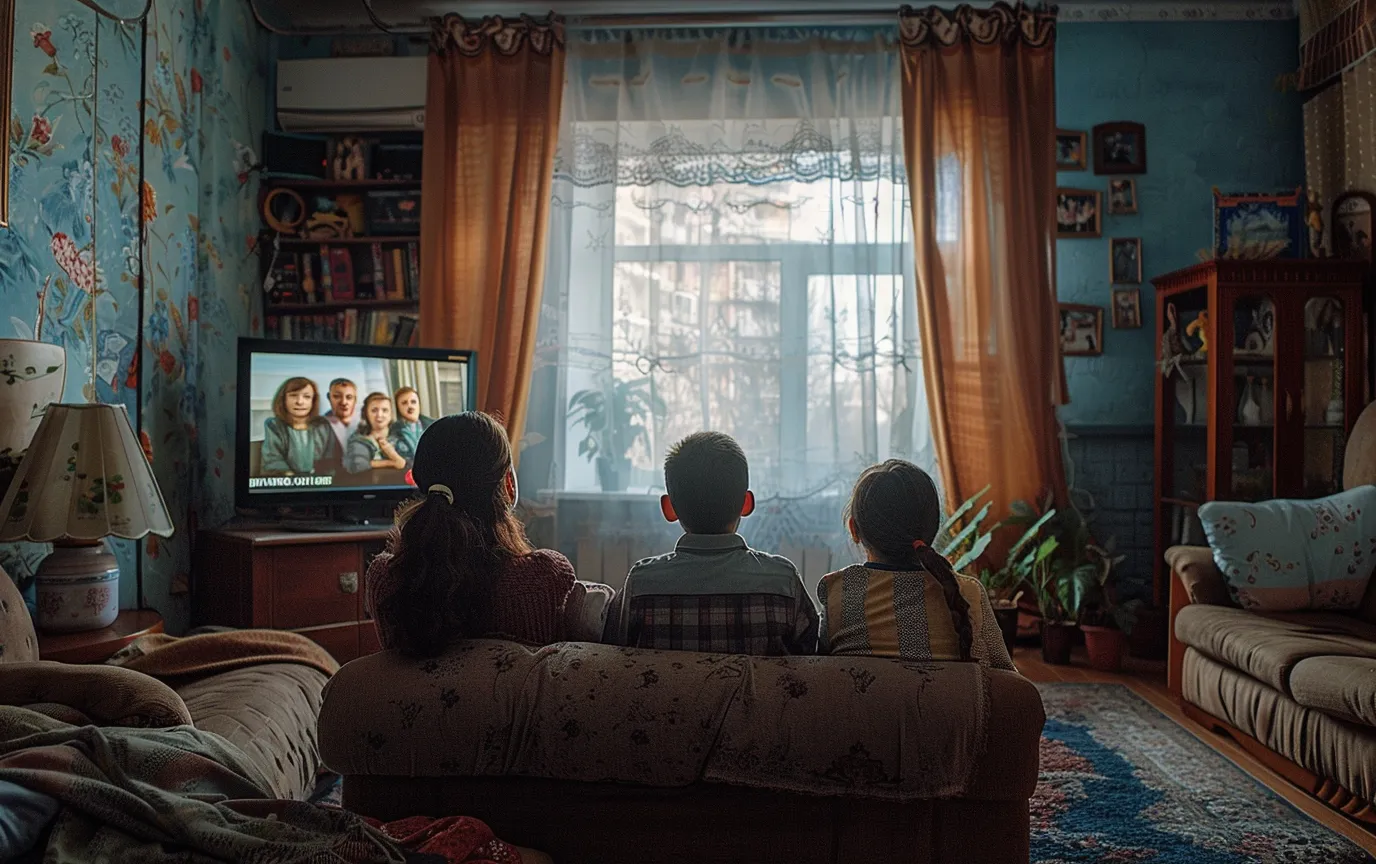
Несмотря на известность, Людмила признается, что до сих пор не может к ней привыкнуть, особенно когда за автографом подходят коллеги-врачи.
В интервью она рассказала, что согласилась участвовать в телепроекте, чтобы победить свой страх публичных выступлений.
Людмила замужем за психологом Орестом Шупенюком, который также часто появляется на украинском телевидении.
Интересно, что в их семье, помимо двух врачей, теперь есть и два психолога — муж и дочь Галина, которая пошла по стопам отца.
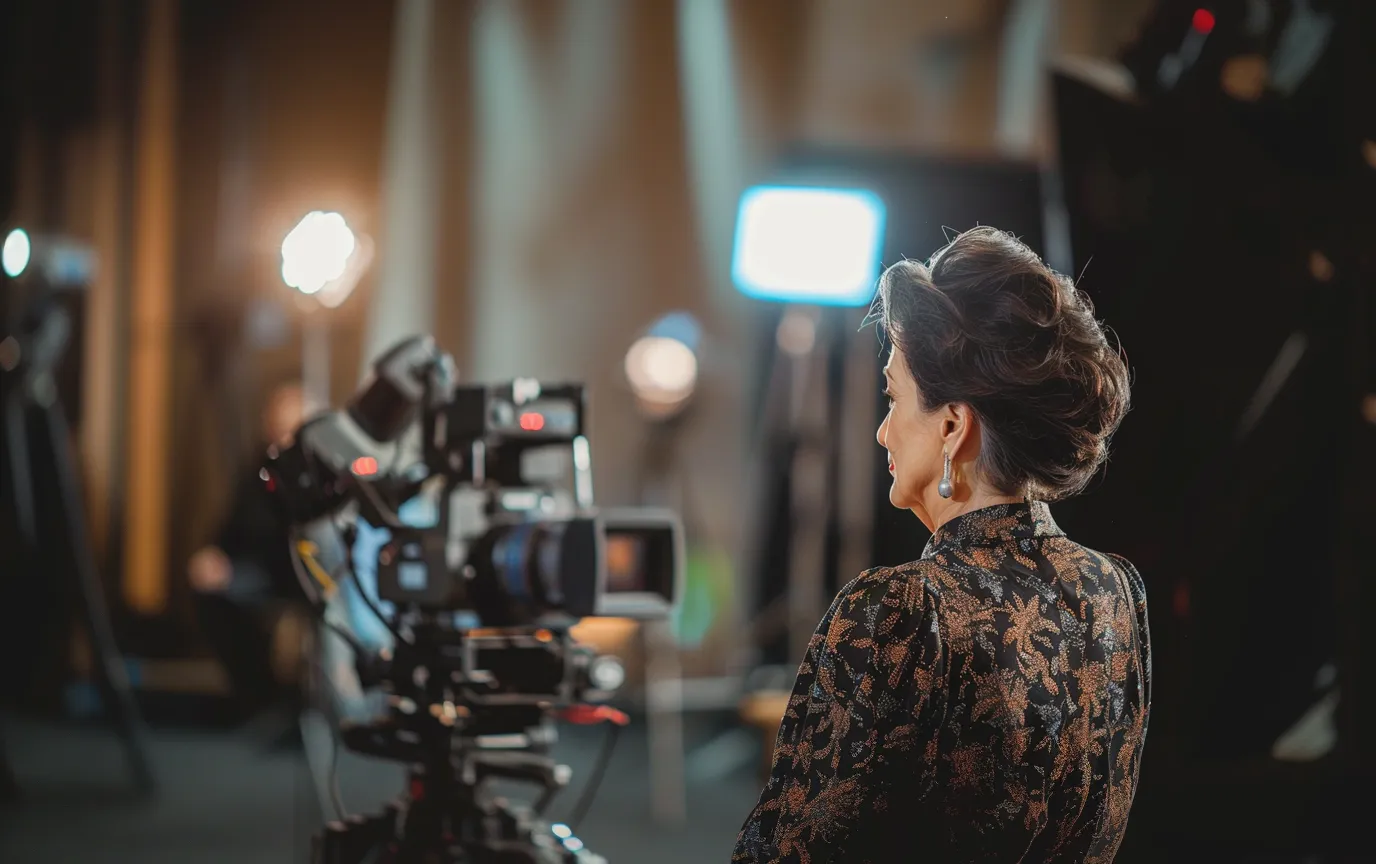
Известный акушер-гинеколог и эксперт медицинского телепроекта «Я соромлюсь свого тіла» (телеканал «СТБ») Людмила Шупенюк полюбилась многим телезрителям.
В интервью она рассказала нам, почему до сих пор не может привыкнуть к известности, а также призналась, как в ее семье появились два психолога
«С годами иммунитет вырабатывается, но некоторые вещи сильно прошибают»
В одной из последних программ вы расплакались. Такой вас увидишь нечасто…
Действительно, это бывает редко, по крайней мере, на камеры. Но мы все люди, и истории героев программы не могут не трогать. Я не сдержала слез, слушая рассказ мамы шестилетней Ирочки, которая болеет прогерией.
Это редкое генетическое заболевание, при котором очень быстро стареют органы. В мире всего сотня людей с таким диагнозом, в Украине – одна девочка.
И эта болезнь на сегодняшний день, к сожалению, не лечится.
Соглашаясь участвовать в проекте, думали, что будет так непросто эмоционально?
У меня такая профессия, что нередко сталкиваюсь с человеческими трагедиями.
Честно говоря, и на рабочем месте не всегда удается сдержаться от слез. Ты же не автомат! С годами, конечно, какой-то иммунитет что ли вырабатывается, но все равно некоторые вещи сильно прошибают.
Следите ли вы за судьбой героев программ?
С некоторыми переписываемся в социальных сетях. Но со всеми участниками проекта – нет. Чаще всего сами пациенты не видят в этом потребности. Или не хотят беспокоить.
Вас часто спрашивают, но все же: какая пациентка поразила лично вас?
Ну, конечно, 26-летняя Карина Рублева – женщина, у которой одновременно диагностировали рак груди четвертой стадии и беременность. Эта история не оставила никого равнодушным!
Сколько работаю врачом, такой опухоли не видела. Испытала огромное внутренне напряжение, когда трогала каменную грудь столь молодой женщины.
В те минуты меня разрывало отчаяние: она ведь не где-то в пустыне живет, по профессии – медсестра, имеет любимого человека. Как можно было подобное допустить? Для меня это было шоком! Ну, сама боялась идти на исследование, но родные? Почему они не убедили ее?
На ваш взгляд, почему украинцы тянут с визитом к врачам?
Недавно мне на глаза попалось любопытное исследование. Оказывается, на первом месте по страхам у людей – страх публичных выступлений, на втором – страх похода к врачу, на третьем – страх смерти.
Мне кажется, если бы между врачами и пациентами устанавливались дружеские отношения, если бы они встречались, чтобы просто поболтать и заодно провериться, все было бы по-другому. Гинекологов женщины точно посещали бы гораздо чаще.
Возвращаясь к истории Карины: у нее нашли опухоль еще перед нашим с ней знакомством, отправили на консультацию в онкоцентр, а она девять месяцев туда не шла, потому что боялась. Рассчитывала, что все пройдет… А если бы не попала к нам на проект? Да и пришла она, честно говоря, поздно, ситуация с ней – непростая.
Ей сделали операцию, провели химиотерапии, вроде все прошло неплохо, но такой запущенный рак вылечить очень сложно. У женщины двое детей: старшая девочка и та, которую родила с нами.
Мне кажется, что все, кто посмотрели сюжеты о ней и чувствуют, что им необходим визит к врачу, обязательно не будут его откладывать. А это одна из миссий нашего проекта.
В какой из историй вы наиболее удовлетворены результатом?
В целом, я довольна результатами всех пациентов, которые обратились к нам. А в частности… Эта история еще не прозвучала, ее только будут показывать. К нам на проект обратилась молодая женщина с невынашиванием беременности.
У нее уже четыре раза случались выкидыши, а пятая беременность оказалась внематочной. И к счастью, Люда недавно с нашей помощью успешно родила. Для меня в моей профессии самое приятное – нормальная беременность и рождение здорового ребенка.
Наверное, поэтому я и пошла в акушерство. Никакое другое медицинское направление не дает возможности так быстро видеть результаты своего труда.
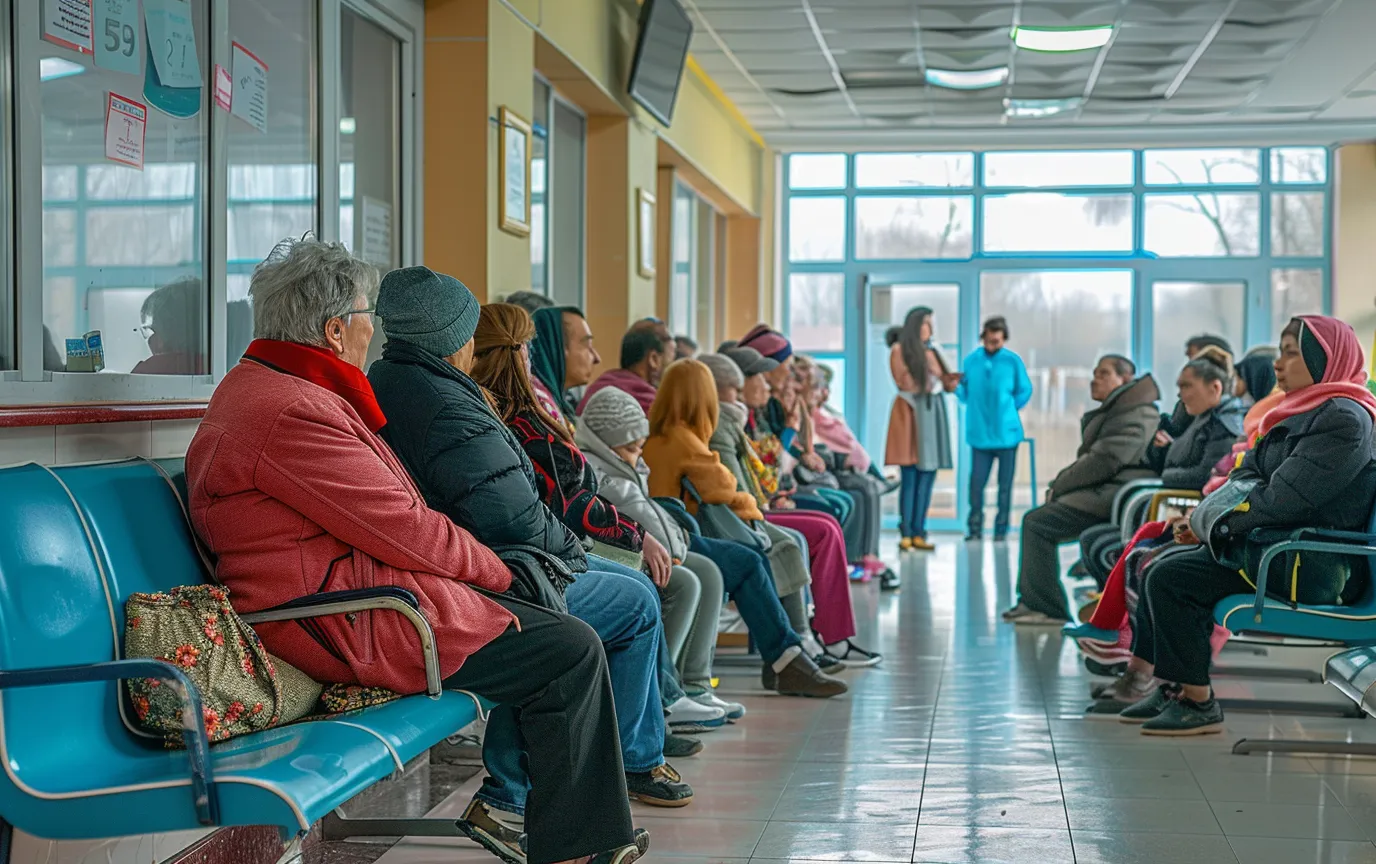
«Я всегда на стороне женщин, ведь жизнь бывает к нам не справедлива: начиная от болезненных месячных, заканчивая родами «
В интервью вы часто говорите, что «ваша судьба была предрешена», ведь в семье – все медики…
Мои родители – врачи. Папа позже перешел на научную работу, занимался эндокринологией. Сестра – детский гастроэнтеролог. Акушер-гинеколог я одна в семье. Как по мне, это самое позитивное, что есть в медицине.
Кроме того, при всей моей любви к мужчинам, я всегда на стороне женщин и где-то в душе феминистка. Мне всегда хотелось им помочь. Ведь жизнь бывает к нам справедлива: начиная от болезненных месячных, заканчивая родами.
Судьба вашей дочери Гали тоже предрешена?
Нет. Вопрос о том, пойти ли ей в медицину, конечно, дома поднимался. Но в этой профессии, чтобы стать хорошим специалистом, нужны годы и годы учебы, а затем – практики. И необходимо продолжать учиться всю жизнь.
Мне кажется, она не была готова так долго ждать. Мы поговорили, все разобрали, и она решила идти по папиным стопам. Теперь у нас в семье два психолога.
Психология и медицина хорошо друг друга дополняют. Первые лечат душу, вторые – тело. Говорите дома о работе?
Вы абсолютно правы – это две стороны одной медали. Третья часть любой болезни –проблемы психологического характера, не медицинского.
Мы много говорим об этом с мужем. Нередко он помогает мне принимать правильные решения в работе.
На семейных торжествах заходит речь о медицине?
Только об этом и говорим! Сестра сейчас увлеклась паразитологией. И ей дочка постоянно напоминает: «Мама, опять ты про глисты за столом?!» А мы все реагируем на это спокойно: интересно же!
Никогда не забуду, как мы коллективом однажды отмечали какое-то торжество. И весь вечер обсуждали болезни! А потом вдруг муж одного доктора вежливо попросил: «А давайте теперь поговорим о лампочках!»
Оказалось, он электрик. И вот тогда мы поняли, что надо иногда и отдыхать от работы.
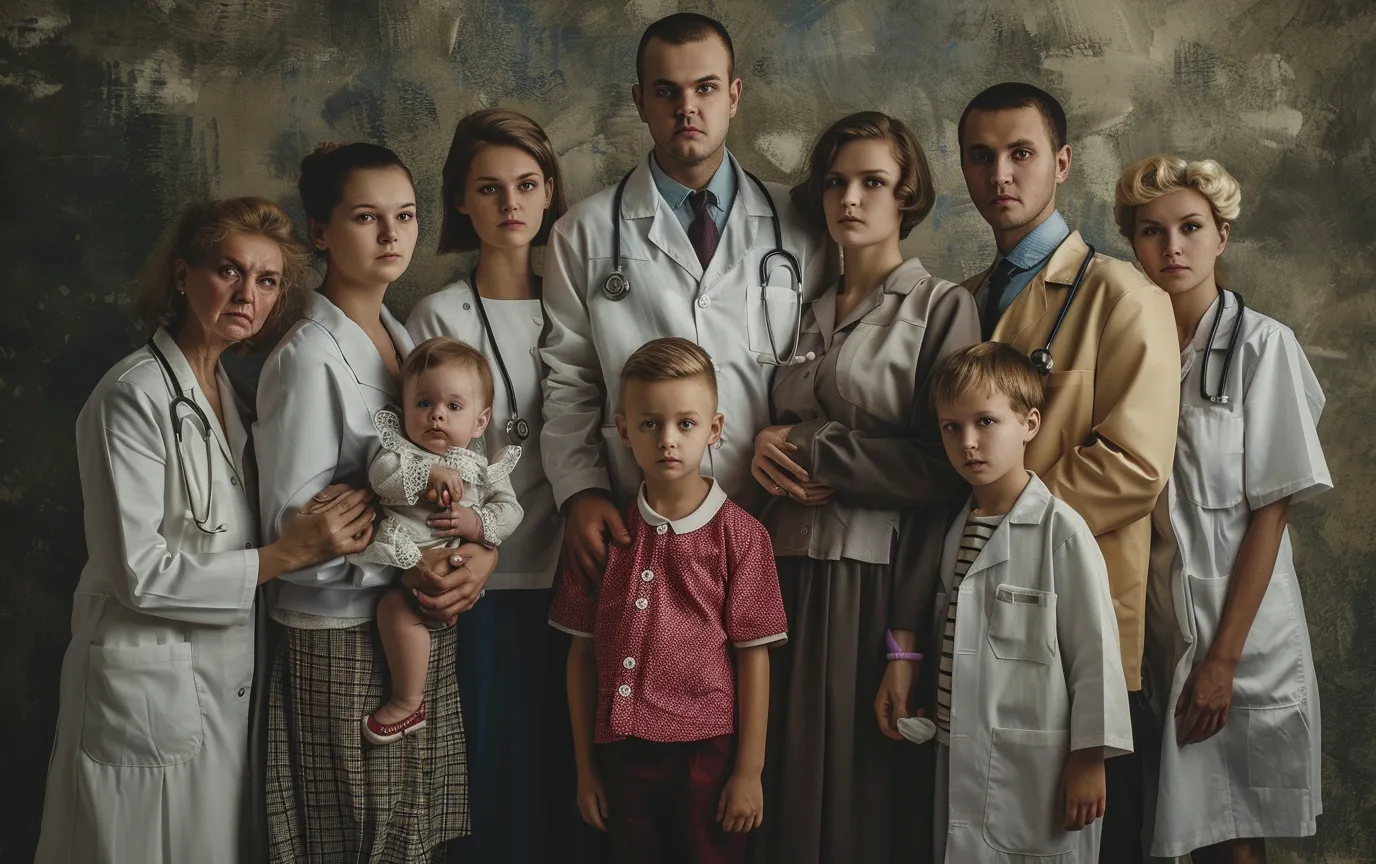
«Галочка, покажи, на что я подписалась!»
Смотрят ли родные ваши программы?
Самая ярая поклонница – моя мама. Она больше переживает за судьбы героев, чем все мы вместе взятые! Кроме этого, ее очень интересует, как я выгляжу в кадре.
Потом она мне говорит: «Вот тут ты была немного уставшей, а вот тут – хорошо!» или «Прическа в последних выпусках тебе идет больше!» Вся моя семья смотрит программу.
У нас уже традиция – по четвергам мы с мужем и дочкой садимся у телевизора. Но Гале непросто даются сюжеты со съемками операций. Говорит: «Мама, если бы это не твоя программа, не смотрела бы!»
Видели ли вы зарубежные аналоги программы?
После того как подписала контракт с телеканалом, пришла домой и попросила дочку: «Галочка, покажи, на что я подписалась». Тогда мы посмотрели пару программ.
Конечно, динамично и интересно, но там все больше похоже на телешоу. Мне кажется, одна из составляющих успеха нашего проекта – то, что его ведущие – не актеры. У нас все по-настоящему. Больше жизни, нашим я верю.
А еще я невероятный патриот нашей медицины. Вижу, каких успехов добиваются мои коллеги. И рада, что имею возможность об этом рассказывать.
Об этом надо говорить, чтобы люди не думали, будто только за рубежом есть хорошие специалисты. На проекте было несколько тяжелых случаев, нам отказали клиники за границей. А наши взялись!
Какие свои страхи и фобии вы победили с помощью проекта?
В это сейчас непросто поверить, но я очень боялась выступать перед аудиторией. Когда-то занималась в студенческом театре, играла в КВН, но мало выступала публично.
Во многом согласилась участвовать в проекте для того, чтобы доказать себе, что смогу не комплексовать перед камерами. Ведь пока не сделаешь, не поймешь – можешь или нет. Я пошла и сделала! Для меня это была победа.
А когда позвонили и сказали, что приглашают во второй сезон, была невероятно счастлива!
Время от времени появляется страх некомпетентности. Со столькими диагнозами, которые увидела на проекте, в обычной работе я не сталкивалась.
Иногда приходят с такими заболеваниями, о которых в книжке только читала. Поднимаешь статьи в Интернете, ищешь, что пишут в мире.
Это, к слову, здорово стимулирует развиваться в разных направлениях.
Одна из фишек вашего проекта – образовательные медэксперименты, которые проводите в людных местах. Какой эпизод был неожиданным?
Для всех нас, троих ведущих, был очень непростым эксперимент, когда мы на Оболонской набережной учили людей, как правильно ходить в туалет. Моя часть была о том, как правильно вытирать попу.
И вот представьте, солидному врачу с опытом, огромным количеством пациентов надо говорить с незнакомыми людьми о вещах, которые не обсуждаешь даже в узком кругу близких. Переступить через себя было очень тяжело. И реакция людей была разной. Кто-то радостно откликался, а кто-то мог и фыркнуть.
Сейчас мы уже привыкли к любой реакции. И знаете, на людей, которые жестко реагируют на наши предложения поучаствовать, смотрю иногда с сожалением.
Это ж надо быть настолько закрытым и скованным, чтобы не уметь поговорить на тему, которая касается здоровья!
Встречаетесь ли вы с коллегами Валерием Ославским и Катериной Безвершенко помимо работы?
У нас очень хороший коллектив! Мы дружим, и это тоже достояние проекта, за что ему очень благодарна. И с Катюшей, и с Валерой встречаемся вне работы, можем вместе куда-то сходить.
Но, к сожалению, это бывает крайне редко. Если я приезжаю в Одессу, то Валера всегда встретит, примет. С Катюшкой вместе ездим на обучающие семинары.
«Я обязательно должна раз в три месяца куда-то поехать«
Как любите проводить свободное время?
Я обязательно должна раз в три месяца куда-то поехать! Это может быть научная конференция или отдых с семьей. По выходным обязательно навещаю родителей. Слава Богу, они живы-здоровы и недалеко – 40 километров от Киева.
Переехали, кстати, за нами с сестрой из Черновцов. Сказали, что если две дочки там, то зачем мы останемся тут? Сейчас им за 80, а на то время было по 68 лет. Все продали и купили дом под Киевом. И папа еще устроился на работу!
Несмотря на свой почтенный возраст, они молоды внутри. День рождения в горах или на Днестре – тоже едут за нами. Иногда наигранно вздыхая – мама неохотно покидает свою зону комфорта, но потом, когда в поездке собирается вся семья, очень оживают.
Как относитесь к тому, что на улице теперь часто подходят за автографом?
Не могу до сих пор к этому привыкнуть! Особенно, когда обращаются коллеги. Я такой же доктор, как они, может, только имею больше публичности. И все. Когда подходят врачи с просьбой: «Можно с вами сфотографироваться?», мне становится немного неловко. А вообще поклонники бывают разные, иногда – неожиданные в своих проявлениях.
Например, когда приезжаю отдохнуть с семьей, а подходит человек и начинает рассказывать о своих болезнях – это неприятно. Или я без макияжа, уставшая, без настроения, а меня, не спрашивая, начинают фотографировать… Но вообще больше позитивных людей встречаю. Я вообще к людям отношусь очень хорошо.
Даже после того, как в Интернете мошенники от вашего имени торгуют различными «чудо-препаратами»?
Вот это меня, конечно, злит! Свой авторитет зарабатываешь на протяжении всей жизни.
Задолго до проекта мы (коллеги Людмилы тоже стали «лицами лекарств» от мошенников. – Авт.) были успешными врачами, нам доверяли и доверяют – и тут кто-то ради наживы использует наши имена! Повлиять на этих дельцов невозможно.
Наш канал пытался, но не удалось. Когда подходят ко мне пациенты и говорят: «Вот вы рассказывали в Интернете, я купил…», так неприятно становится. Приходится в который раз оправдываться: «Не имею к этому отношения».
Война ускорила прогрессирование заболеваний и сделала онкологию моложе
Как изменилась ваша работа после начала полномасштабного вторжения?
Начало войны стало огромным потрясением для всех, в том числе и для медиков. Как вспоминает Людмила:
«В первые месяцы мы чувствовали полный ступор и моральный паралич. Мы не могли выйти на работу, и вся наша жизнь ушла в интернет. Мне пришлось как-то смириться с этим, потому что я просто ненавижу онлайн-консультации!»
Бывали и крайне сложные ситуации, например, когда молодые медсестры звонили и просили совета, как принимать роды, когда беременные женщины не могли добраться до родильных домов.
«Это был кошмар. Я поняла, что должна не только взять себя в руки, но и поддержать других», — делится Людмила.
Примерно через месяц после начала вторжения она отправилась в Черновцы в качестве волонтера, чтобы лечить перемещенных беременных женщин.
Этот опыт заставил ее еще больше оценить хорошо оборудованную клинику и доступ к необходимым лекарствам, которые она создала в Киеве.
Через два месяца после окончания войны Людмила возобновила очную работу в своей клинике, так как пациенты начали возвращаться.
«Было сложно, потому что иногда врачи не могли попасть в клинику, но человек ко всему привыкает. Мы пережили и отключение электричества, и падение мусора за окном во время консультаций».
Какие проблемы со здоровьем стали более распространенными среди женщин в военное время?
Людмила отмечает несколько тенденций:
«Онкология помолодела. Увеличилось количество случаев рака груди и шейки матки. Когда я диагностирую рак шейки матки у 25-летней девушки, это очень печально».
Она наблюдает все больше случаев агрессивной фибромиомы, даже у молодых женщин, а также эндометриоз у пациенток моложе 35 лет.
«Когда мы испытываем стресс, мы набираем вес. Лишний вес — это пусковой механизм для 13 видов рака», — объясняет Людмила.
Увеличение веса в сочетании с гормональным дисбалансом, нарушенной сексуальной жизнью и расстройствами пищевого поведения приводит к многочисленным проблемам со здоровьем.
«Иногда болезни прогрессируют так быстро, что я начинаю сомневаться, не имею ли я дело с раком», — признается она.
«Коллеги подтверждают, что сегодня болезни ведут себя очень агрессивно. Онкологи отмечают как увеличение числа случаев рака, так и более поздние стадии при постановке диагноза».
Что вы посоветуете женщинам по поводу обследований?
«Мы все привыкли к ежегодным обследованиям, потому что обычно болезни развиваются не так быстро. Но сегодня я вижу тенденцию к агрессивному прогрессированию заболеваний. Это нужно иметь в виду», — подчеркивает Людмила.
Она настоятельно рекомендует женщинам не откладывать профилактические осмотры и обследования даже в это непростое время.
«Можно бесконечно рассуждать об актуальности, но давайте будем честными — мы не знаем, как долго продлится война. Это наша жизнь, наше здоровье, и важно заботиться о себе».
Регулярные медицинские осмотры
Людмила считает возвращение украинских женщин к регулярным медицинским осмотрам обнадеживающим знаком.
«То, что мы делаем сегодня, — это наш вклад в то, что мы непобедимы. Это наша внутренняя победа над ситуацией».
Несмотря на все трудности, она остается приверженцем женского здоровья:
«Сегодня я еще больше ценю открывшиеся возможности, а еще больше — людей, которые продолжают доверять мне свое здоровье.
Когда пациенты приходили на первые приемы после начала великой войны, мы даже выделяли 30 минут на объятия, слезы и такие важные «Как дела?».

